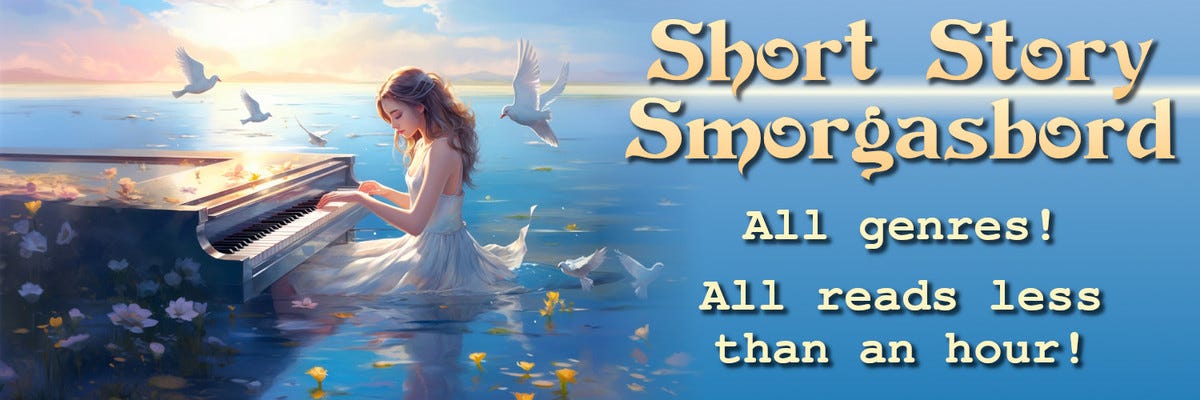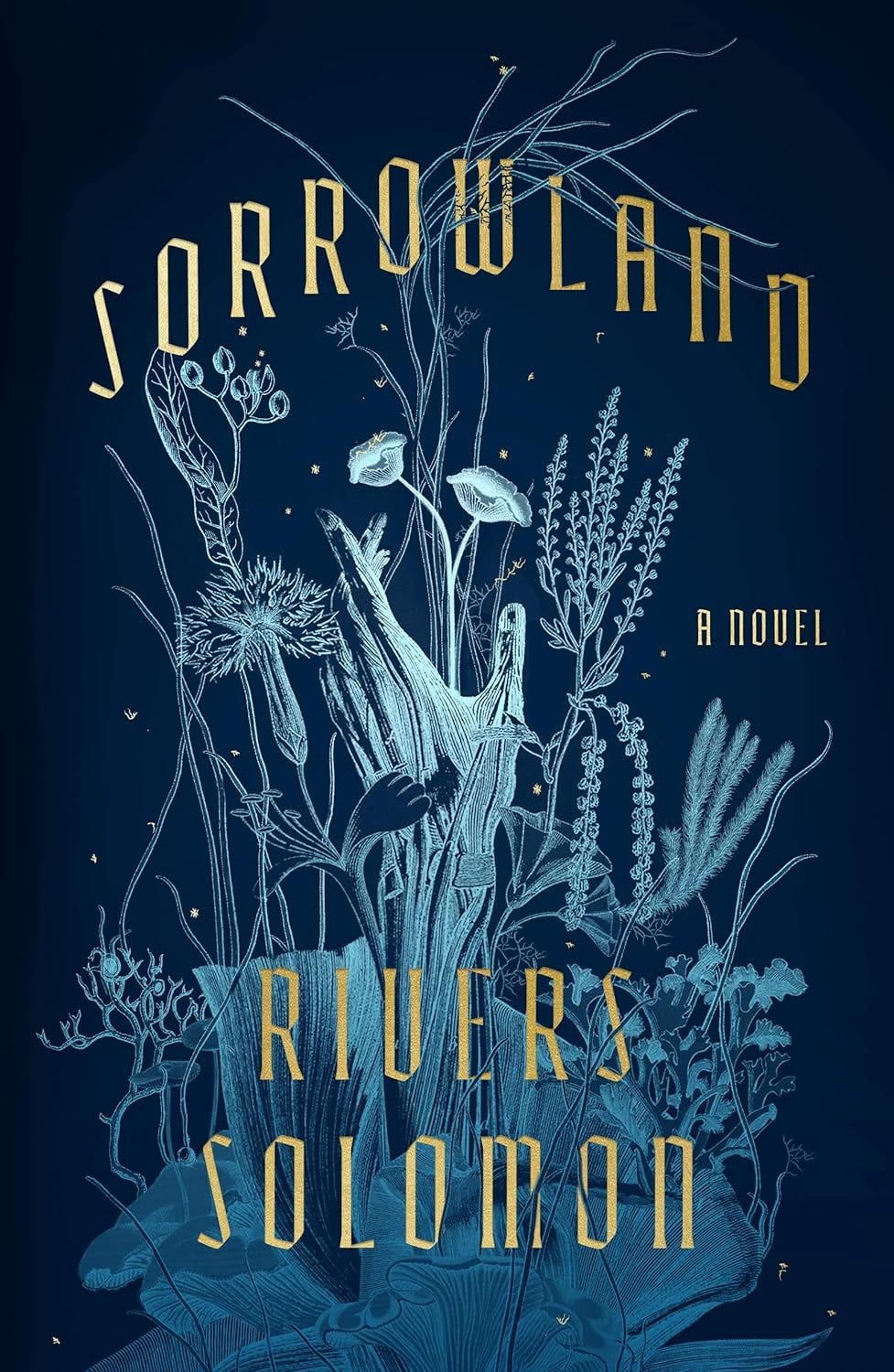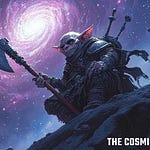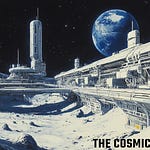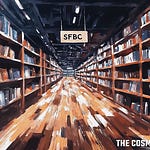My novelette, An Illicit Mercy, is part of a new promotion in November: Short Story Smorgasbord.
Check out over 75 stories, including a good selection of sf, available for free.
My latest short story An Unexpected Grace appears in Boundary Shock Quarterly 24: Science Fiction Holidays.
Still coming to terms with her decisions during a recent assignment, Corporal Siwela takes a leave-of-absence. Perhaps a holiday visit to her home community will help get her head straight. But the trip doesn’t go as planned. Marooned and wounded in the Martian outback, running out of air, Siwela won’t survive without aid. This wasn’t how she planned to spend Christmas.
Club Codex is reading and discussing the Otherwise Award-winning novel “Sorrowland” by Rivers Solomon through November 25. Please join us!
I love Godzilla movies. The Big G has fascinated me for most of my life. At least since I saw the butchered American version of the 1954 original on TV during the 1980s. The Japanese had made a “giant monster” movie to process the trauma of the atomic bombs the U.S. dropped on them. That was mind-blowing! Here was a film with both a cool, fantastical premise, and something to say.
The sequels were often less serious. Many transformed Godzilla from a vengeful force of nature into a Japanese antihero. But even some of the sillier movies kept traces of the original themes.
I came to John Scalzi’s Locus winning novel The Kaiju Preservation Society hoping for a Godzilla movie in novel form. That’s not what I found.
KPS tells the story of Jamie Gray, a former grad student, turned food delivery start-up exec, turned gig worker, turned…lifter-of-things. This last is a job attached to an organization preserving giant monsters. Living in western Canada. On a primordial, alternate Earth.
An interview question for the lifer-of-things position addresses what the candidate “think[s] about science fiction and fantasy.”1 Jaime’s master’s thesis had been about “bioengineering in science fiction from Frankenstein through the Murderbot novellas,”2 so this criterion isn’t a problem.
En route to “Kaiju Earth”, Jaime meets and bonds with three other first-timers. The novel takes off when they get to their destination.
I learned a lot about the ecology of Scalzi’s “kaiju” reading this book. This included more than I’d expected about their mating patterns. These are important to the plot in a creative yet sensible way.
As Jaime’s thesis might imply, Scalzi includes a lot of sf fan-service in KPS. This includes repeated references to Snow Crash, Neal Stephenson’s 1992 cyberpunk deconstruction. And of course the obligatory Heinlein Easter-eggs, which seem to infuse the author’s work.
I appreciated the thoroughness with which Scalzi thought through kaiju biology. He even taught me an unfamiliar word: “commensal.” I love it when books do that!
KPS is a fun, fast-paced, and light read.
But it includes a few elements that rubbed me the wrong way.
Scalzi tells us little about what his monsters look like. He tends to describe them in general terms: "a small mountain" (three times, all before page 50), "the size of skyscrapers", a "dim-witted pile of rock". We get some embellishment about eyes, wings, and tentacles, but it’s all pretty vague.
I found this to be a big mistake when translating the kaiju genre from screen to page. One pleasure of the cinematic creatures is how they differ from one another in cool ways. I missed that experience in KPS.
Scalzi may be trying to channel the movie Jaws, which didn’t show the shark for over an hour-and-a-quarter. The only problems with this are that Jaws isn’t a kaiju movie. And it's a shark. Everyone knows what a shark looks like—even a giant one. KPS needed to do better. I want my cool monsters!
The four core human characters enjoy witty banter among themselves. This is nothing new for a Scalzi novel. But a little witty banter goes a long way. In KPS, it’s a running gag that wears out its welcome. As the situation grows more and more serious, the characters continue joking around like they did on the flight out. It’s too much.
Scalzi disappointed me by including a "Jack Bauer" moment of psychological torture three-quarters of the way through the book. Morally, the discussion around Abu Ghraib and waterboarding moved us beyond illusions any form of torture could be justified for a "virtuous" end. Practically, we know from the studies discussed during the War on Terror that torture doesn't work. Aesthetically, it's a cop-out. We've seen it too many times in books, on TV, and in movies. Surely there was a more elegant way to get Jamie the required information. Instead, Scalzi played it for laughs. But torture isn't funny.
I’m tempted to give KPS a “Leave it” recommendation. It’s the literary equivalent of a summer popcorn blockbuster—all flash with little heft.
But I learned to evaluate stories by watching, listening to, and reading Roger Ebert. He taught me each type of story must be assessed against other stories of like kind. You just can’t compare “Citizen Kane” with “Knocked Up.”
Using that measuring stick, the novel stands up pretty well. If all you’re looking for is a summer blockbuster, Scalzi’s novel is probably worth the cover price.
He includes an author’s note where he calls KPS “a pop song”. So he has no illusions about what he’s doing here, and he does it well.
But it’s still not as fun as watching a Godzilla movie.
Audience: The Kaiju Preservation Society is a good book for those who want a quick, exciting sf read that doesn’t take itself too seriously.
If that sounds like you, then...
Recommendation: Read it
Please share your thoughts about this article!
1 John Scalzi, “The Kaiju Preservation Society” (Tor), 19
2 John Scalzi, “The Kaiju Preservation Society” (Tor), 19





